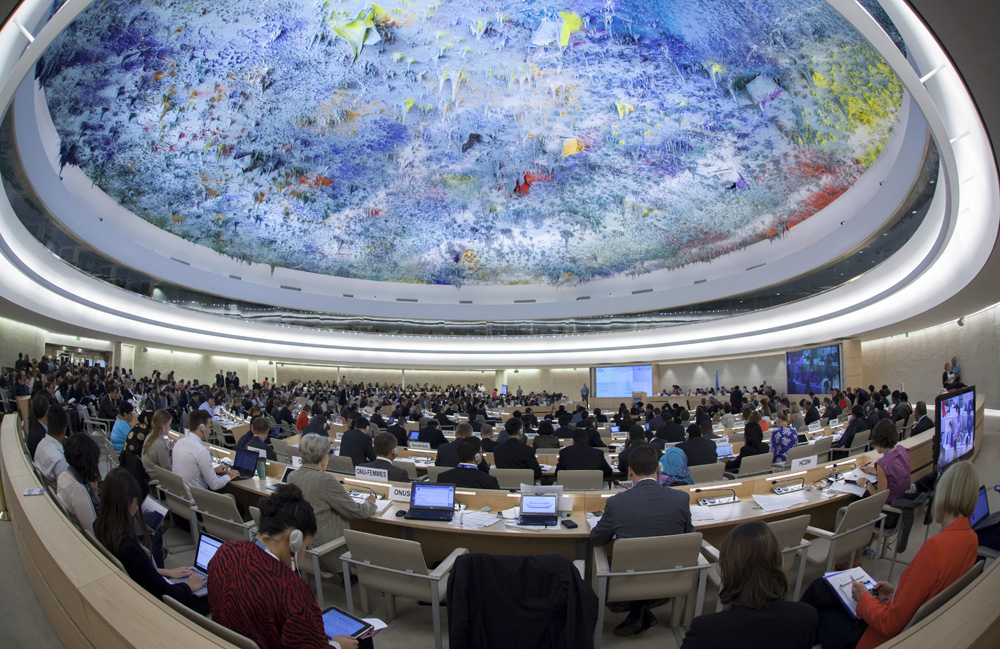
Sri Lanka received strong cross-regional support in the Human Rights Council from countries in Asia, Africa and Latin America on Thursday ( 26 September 2013) which uniformly welcomed and commended the country’s significant progress achieved in the reconciliation process.
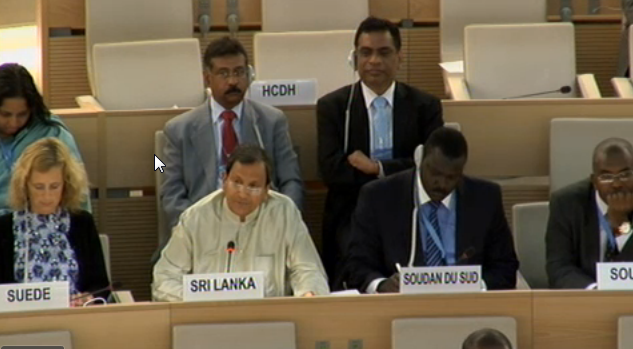
Sri Lanka's Permanent Representative to the UN in Geneva Ambassador Ravinatha Aryasinha told the UN Human Rights Council on Wednesday (25 September 2013) "Sri Lanka strongly repudiates the High Commissioner’s assertion that if certain concerns are not comprehensively addressed before March 2014, she believes the international community will have a duty to establish its own inquiry mechanisms". The Ambassador said High Commissioner Navanethem Pillay had "no mandate to make such a claim". He said having accomplished the task of bringing normalcy to the lives of the civilian population, GOSL has put in place "multiple mechanisms" to address concerns relating to accountability.
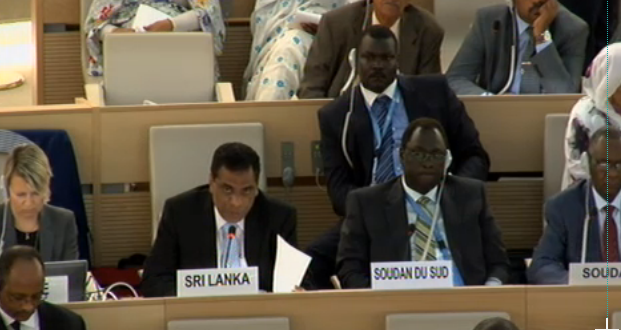
In an intervention made during the interactive dialogue with the Independent Expert on Sudan in the 24th session of the Human Rights Council on 25 September 2013, Deputy Solicitor General Mr. A. H. M. D Nawaz said that, as a country that has emerged from a protracted terrorist conflict, Sri Lanka is empathetic to the many challenges faced by Sudan in its progression towards normalcy.
Sri Lanka reiterates its strong commitment to the core principles of equality and non-discrimination
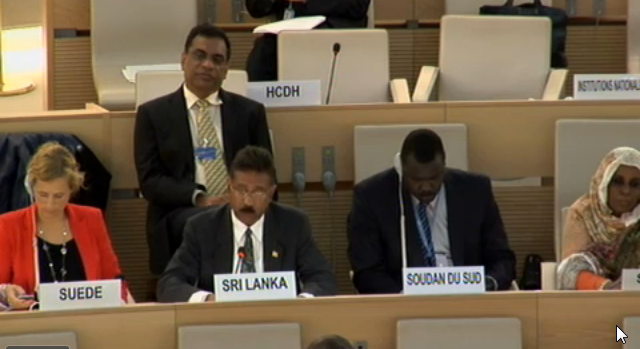
Sri Lanka recognized the need to address, at the global level, contemporary manifestations of racial discrimination such as xenophobia and related intolerance and reiterated its strong commitment to the core principles of equality and non-discrimination embodied in the Durban Declaration and Programme of Action.
Exercising a 'right of reply' with regard to references made to Sri Lanka by Germany, the US and Ireland under Agenda Item 4 - General Debate at the ongoing 24th Session of the Human Rights Council, the Sri Lanka delegation on Thursday (19 September 2013) said, it seemed ironic that at a time when for the first time since the introduction of the Provincial Council system in 1987 elections to the Northern Provincial Council are to be held later this week that Germany should choose to discredit the process and prejudge its outcome and impact. It was noted that the commitment of the Government to ensure the transparent and free and fair conduct of the election not only to the Northern Provincial Council, but also to the Central and North Western Provincial Councils which go to the polls this Saturday is clearly demonstrated by the presence of 24 election observers from the South Asian region as well as from Commonwealth countries, on the invitation of the Elections Commissioner.
Full text of the statement
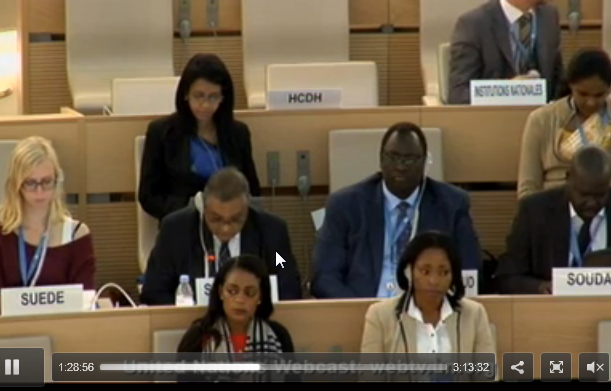
The Government of Sri Lanka has launched a three-year project, implemented by the Ministries of Cultural Affairs and National Heritage, to table a draft bill to safeguard the existence and rights of the indigenous people, “vanniyaletto” also known as the “aadivasi”. The project also provides legal facilities to the indigenous community, measures to conserve their traditional knowledge and traditional medicines, and support to establish a museum on their heritage, among others. In order to create greater awareness about the indigenous community, which is instrumental towards the preservation of their lifestyle, the Government has also established several cultural centres and documented the history of the community and their way of life.
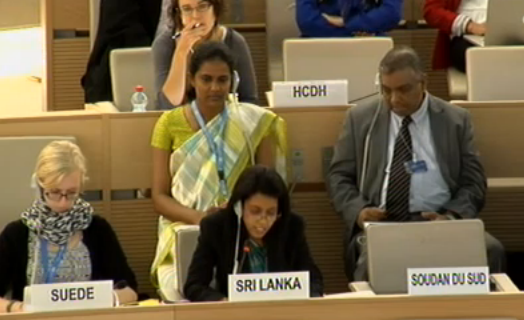
Sri Lanka says, while there needs to be commitment at both national and international levels to achieve the right to development, there must be more focus on addressing the special needs of developing countries which are unequally impacted by structural problems, external events and global economic and financial crises.
